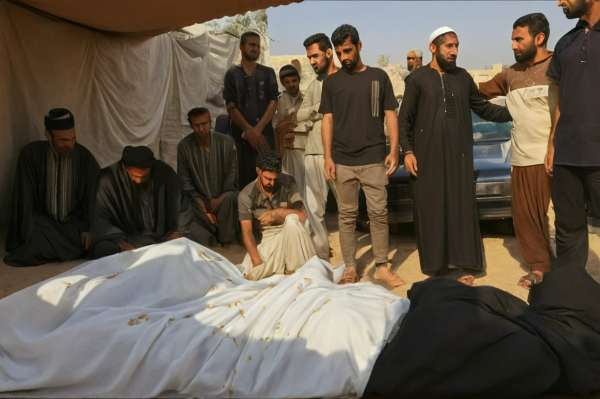Iran’s Plan to Strike Back Against the U.S.
Iran’s Military Preparations Following U.S. Attacks
Loading...

Israel Conducts More Deadly Air Strikes Across Gaza Amid Renewed Truce Efforts
At least 27 Palestinians were killed in Israeli strikes across Gaza on Sunday, as the conflict, now in its 10th month, continues to inflict heavy casualties.
One of the strikes hit a school sheltering displaced people in western Gaza City, resulting in the deaths of at least four Palestinians. In central Gaza, an Israeli airstrike on a residential building in the al-Zawayda area claimed the lives of six individuals, including two children, according to the Palestine Red Crescent Society.
These attacks followed a deadly incident on Saturday where a United Nations-run school for displaced Palestinians was targeted, killing at least 16 people and wounding dozens more.
In another strike, paramedics reported that six Palestinians were killed in an attack on a house in Gaza City. Additionally, Israeli jets targeted civilians on Street 8 in the Sabra neighborhood, killing at least two people.
Overnight, the Israeli military also struck a municipality building in Khan Younis, southern Gaza, which they alleged was used by Hamas for "military activity." Details on casualties from this attack were not immediately available. Hamas, however, denies using civilian areas, including schools and hospitals, for military purposes.
The overall death toll from Israeli strikes on Gaza since October 7 has reached 38,153, as reported by Gaza's health ministry on Sunday. The United Nations has highlighted that the conflict has displaced 90% of Gaza's population, left nearly 500,000 people facing "catastrophic" hunger, and caused most hospitals to cease operations.
Gaza's healthcare system is overwhelmed, with the Al-Aqsa Hospital struggling to cope with the influx of wounded from ongoing Israeli airstrikes. Dr. Muhammad Salha, acting director of Al-Awda Hospital in Jabalia, described the situation as "very difficult."
Diplomatic Efforts Intensify
Amid the continuing violence, new diplomatic efforts are underway. Mediators from the United States, Qatar, and Egypt are actively seeking to end the nine months of hostilities. Reports indicate that Cairo is hosting delegations from Israel and the U.S. to negotiate a ceasefire and a potential hostage-release deal.
These talks involve contact with Hamas, with Egyptian officials holding intensive meetings with all parties to push for a truce. Israel has indicated it will send a delegation for talks with Qatari mediators in the coming days. However, Israeli Prime Minister Benjamin Netanyahu's spokesperson noted that "gaps" remain in the ceasefire negotiations with Hamas.
In May, U.S. President Joe Biden proposed a plan for an initial six-week truce and a hostage-for-prisoner exchange, though discussions had stalled until a recent proposal from Hamas showed potential for progress. Senior Hamas official Osama Hamdan said that new ideas from Hamas have been conveyed to the U.S., who passed them to Israel, putting the decision in Israel's hands.
Regional and Domestic Repercussions
The conflict also extends beyond Gaza. Since October last year, Israel and Lebanon's Hezbollah group have exchanged near-daily cross-border fire, with recent escalations raising concerns of a broader war. On Sunday, air raid sirens sounded across northern Israel as the army reported 20 rockets fired, some intercepted by air defense systems.
Domestically, protests have erupted across Israel as demonstrators demand the Netanyahu government negotiate to secure the release of hostages held in Gaza. Protesters have blocked major intersections, picketed politicians' homes, and briefly set fire to tires on the Tel Aviv-Jerusalem highway before police intervened.
Iran’s Military Preparations Following U.S. Attacks
Troops remain in five strategic locations, raising fears of renewed tensions and long-term occupation.
Opposition forces have taken control of the capital after a significant offensive. Here is how it unravelled.
